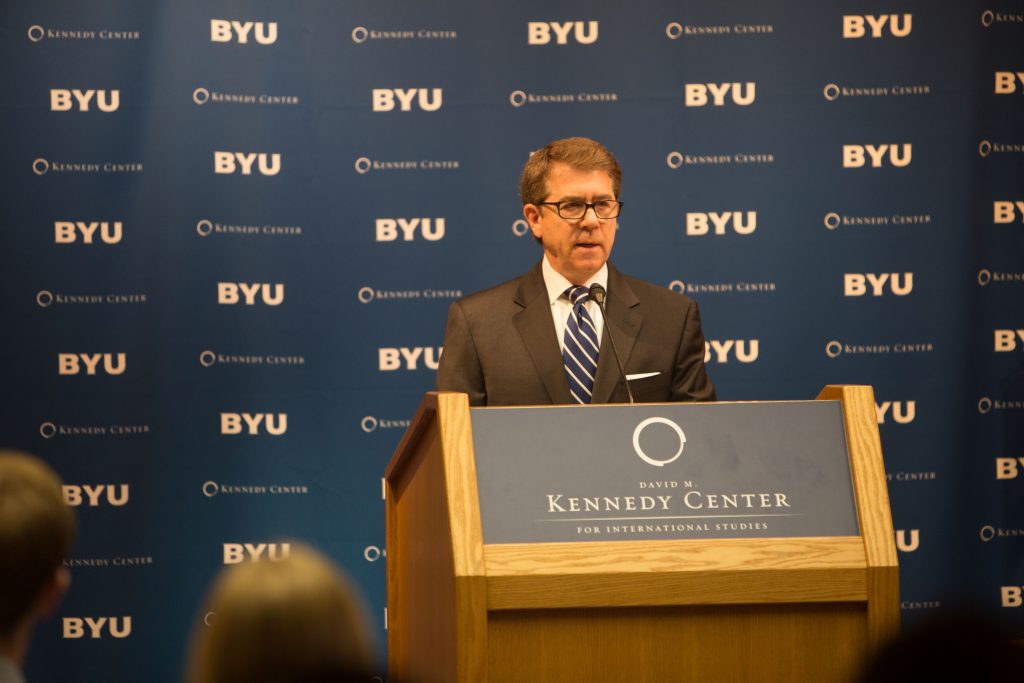
The Kennedy Center hosted ambassador Lincoln Bloomfield Jr., on Wednesday, Nov. 2, when he lectured about national security priorities and challenges facing the next president.
Bloomfield is a political scientist and expert on foreign affairs. The Harvard graduate is chairman of the nonpartisan Stimson Center in District of Columbia and a director and national executive committee member of the U.S. Water partnership. He formerly served as assistant secretary of state for political military affairs.
In his speech “America and the World, 2017 and Beyond,” Bloomfield addressed the role of the U.S. regarding foreign policy.
He opened his speech by quoting theologian Reinhold Niebuhr, who spoke of two extreme idealisms shaping America’s views of world power. Neither side has a champion, Niebuhr said.
“We’ve had our share of idealists who believe America is morally compromised by the ambitious pursuit of influence in the world,” Bloomfield said. “At the other end of the idealist spectrum, we see those who find no fault in America’s unabashed exercise of pseudo power influence.”
Bloomfield shared his thoughts on the 2016 presidential campaigns and his views on both candidates’ foreign policy.
He expressed concern about Donald Trump and said there is a lack of evidence he’s given serious thought to the position he is undertaking.
Bloomfield said Clinton has a considerable reservoir of government and public policy. She has a traditional campaign approach with many mainstream policies designed to demonstrate sensitivity to voters’ concerns about the economy, discrimination and other issues, he said.
Bloomfield then shared his recommended principles for foreign policy, regardless of which candidate becomes president. These principles included downsizing the senior ranks of government to empower an elite class of individuals, adopting a national security strategy worthy of its name and standing for internationally accepted principles.
“My hope is that our next president will seek broad, national consensus around the proposition that America seeks a just world and will stand for internationally accepted laws, principles and forms of conduct among nations,” Bloomfield said. “Furthermore, I hope that national security strategy will find its moral basis by aligning the broad principles of hope and justice for all peoples.”
Visit the Kennedy Center website to view full video recordings of past lectures and to learn more about upcoming events.




